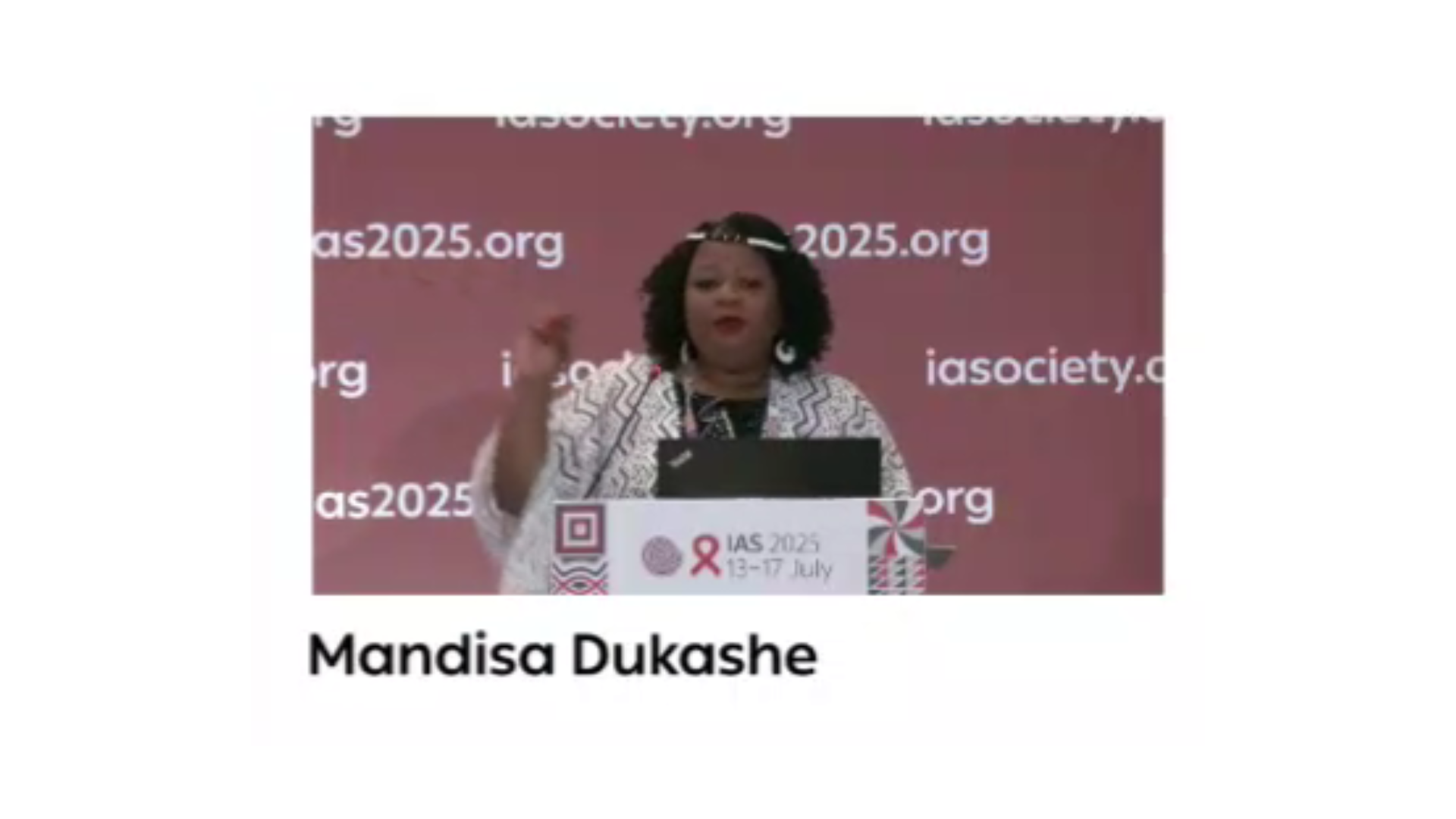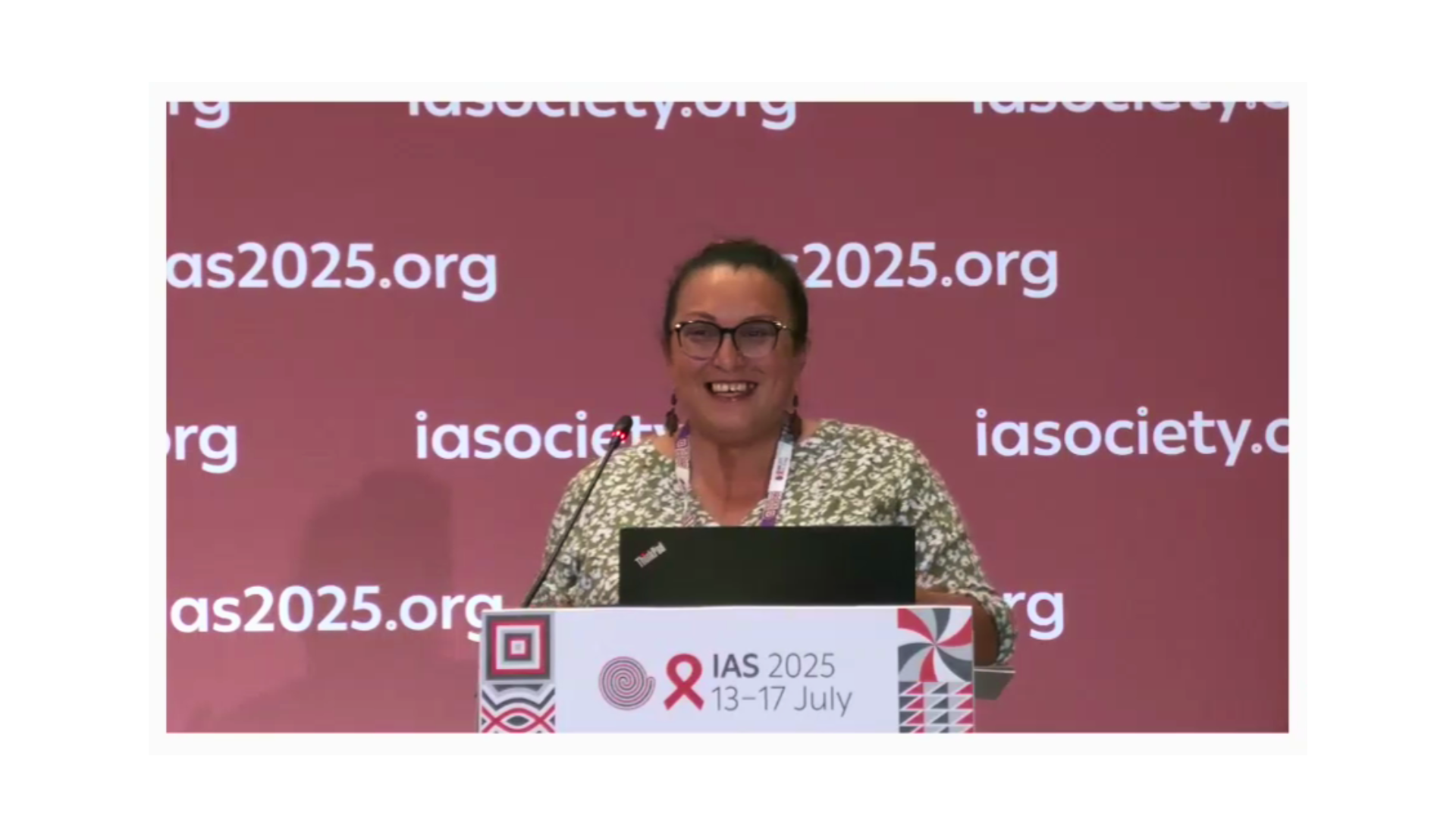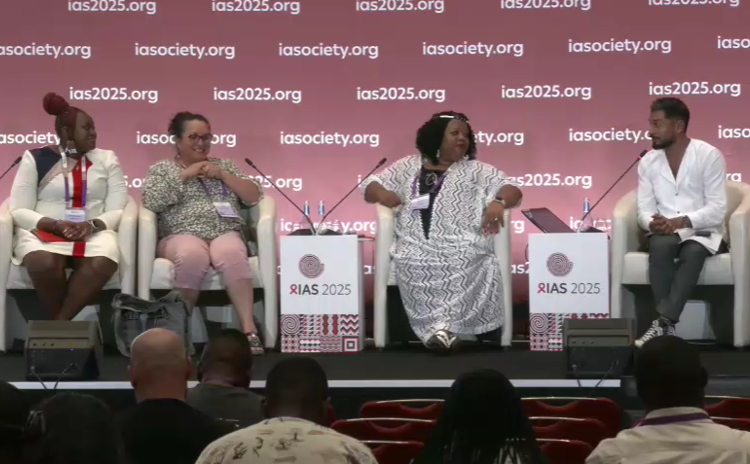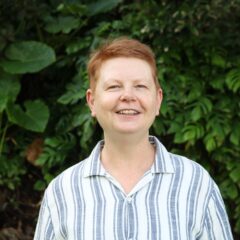The lived expertise of communities took centre stage at IAS 2025 Conference on HIV Science, as the powerful spirit of the ‘We Are the Experts’ movement – first spotlighted at AIDS 2024 – returned in full force during this impactful session “From Lived Expertise to Action”.
Community leaders, researchers, and advocates shared a clear and urgent message: communities most affected by HIV, particularly women living with HIV, young people and members of key populations, must be recognized not as participants, but as leaders. Not as case studies, but as changemakers. They also highlighted both the systemic barriers that continue to marginalize these efforts and the transformative impact of community-led action.
Mandisa Dukashe from South African National AIDS Council emphasized the vital role of community-led research and community-led monitoring in shaping national HIV policies to ensure that they meet the actual needs of communities most impacted by HIV, stating that
Community members are not just data collectors. We are catalysts for transformation.

In the same line, Erika Castellanos, GATE’s Executive Director, delivered a passionate call to action for the recognition of the role of women – especially trans women, sex workers, women who use drugs, and young women – in the HIV response, declaring:
By meaningfully and intentionally centring women’s lived experiences, we are not simply advocating for fairness; we are creating more effective, responsive, and sustainable HIV programs. Women living with HIV, particularly trans women, have consistently proven that we do not merely survive but lead transformative movements.

Erika also warned of the growing global anti-gender movement that seeks to silence and erase women’s rights and identities, calling for unity, urgency, and resistance:
Across the globe, this movement actively seeks to silence and erase us – our identities, experiences, and contributions.
She claims that by centring women’s voices, we can counter anti-gender and anti-rights movements and transform narratives of vulnerability into stories of resilience, strength, and expertise:
“When women speak, and people listen, they disrupt the status quo. They demand accountability from decision-makers and push for policies and interventions rooted in human rights and dignity.”
Challenging the marginalization of young people in the HIV response, Doreen Moracha from Kenya and founder of I Am A Beautiful Story, brought the voice of youth into sharp focus:
If we are always guests in rooms that we should be building, we will never take the HIV response forward. Young people are not the future – we are the present. We are doing the work. We need recognition and resources.

Moracha also raised alarms about shrinking international funding, which has devastated many youth-led initiatives and peer support programs. Too many young experts, she said:
have lost their jobs, because they are not considered experts. At what point do we recognise the expertise of young people
At the end of the session, responding around the donor defunding and the erasure of marginalized communities, Erika Castellanos reminded us that:
In the beginning, there was no funding, there was community, and we were doing the work without funding. I am overwhelmed by the fear that we will go back to those days… This crisis has struck us so hard and fast that we’re struggling to design sustainable systems, and it will not be easy; lives will be lost, but the HIV response has always been resilient and adaptable, and I think we will do this.
One big truth echoed from this session: the future of the HIV response is not something to be planned for communities – it must be built with them, led by them, and sustained through their expertise.






